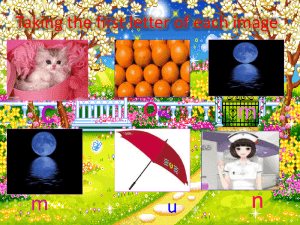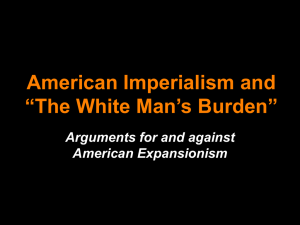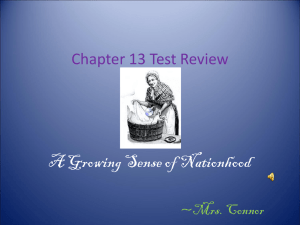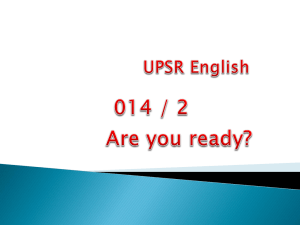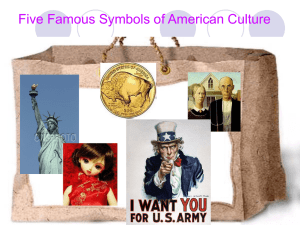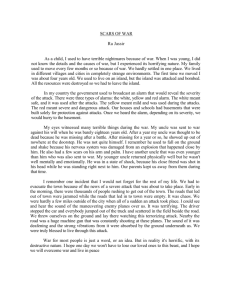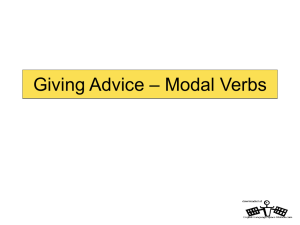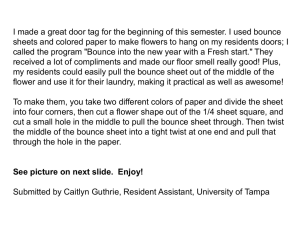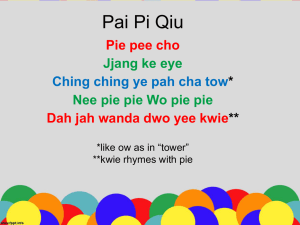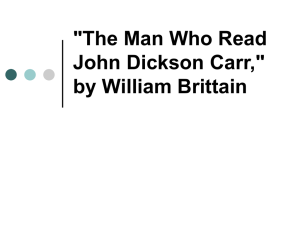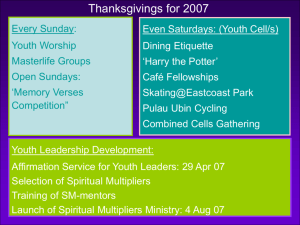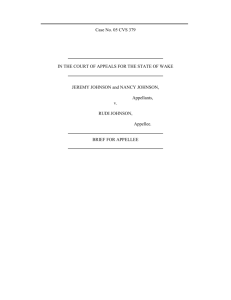Verica Peacock Harlow Bouncing Back
advertisement
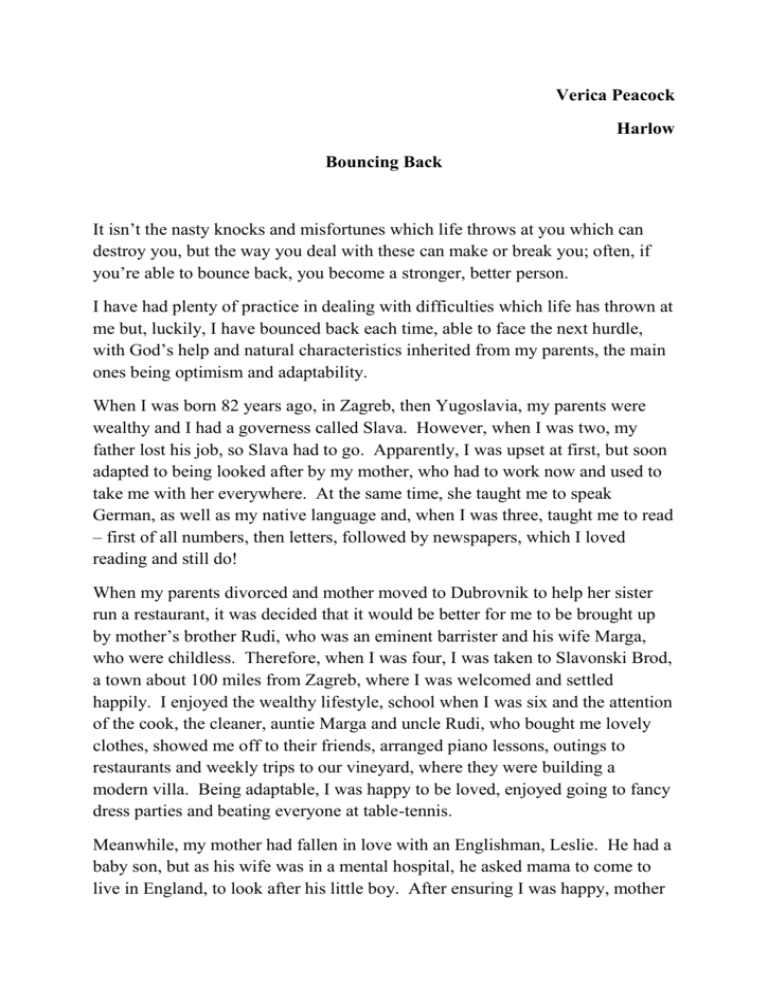
Verica Peacock Harlow Bouncing Back It isn’t the nasty knocks and misfortunes which life throws at you which can destroy you, but the way you deal with these can make or break you; often, if you’re able to bounce back, you become a stronger, better person. I have had plenty of practice in dealing with difficulties which life has thrown at me but, luckily, I have bounced back each time, able to face the next hurdle, with God’s help and natural characteristics inherited from my parents, the main ones being optimism and adaptability. When I was born 82 years ago, in Zagreb, then Yugoslavia, my parents were wealthy and I had a governess called Slava. However, when I was two, my father lost his job, so Slava had to go. Apparently, I was upset at first, but soon adapted to being looked after by my mother, who had to work now and used to take me with her everywhere. At the same time, she taught me to speak German, as well as my native language and, when I was three, taught me to read – first of all numbers, then letters, followed by newspapers, which I loved reading and still do! When my parents divorced and mother moved to Dubrovnik to help her sister run a restaurant, it was decided that it would be better for me to be brought up by mother’s brother Rudi, who was an eminent barrister and his wife Marga, who were childless. Therefore, when I was four, I was taken to Slavonski Brod, a town about 100 miles from Zagreb, where I was welcomed and settled happily. I enjoyed the wealthy lifestyle, school when I was six and the attention of the cook, the cleaner, auntie Marga and uncle Rudi, who bought me lovely clothes, showed me off to their friends, arranged piano lessons, outings to restaurants and weekly trips to our vineyard, where they were building a modern villa. Being adaptable, I was happy to be loved, enjoyed going to fancy dress parties and beating everyone at table-tennis. Meanwhile, my mother had fallen in love with an Englishman, Leslie. He had a baby son, but as his wife was in a mental hospital, he asked mama to come to live in England, to look after his little boy. After ensuring I was happy, mother went to England and did just that. Auntie Marga used to write to her, enclosing little notes and poems from me. Although WW2 started in 1939, it didn’t reach Yugoslavia until 1941, when German soldiers overran our country. Soon after, because we were born Jewish, uncle Rudi, auntie Marga and I became Christians. We attended church regularly. As uncle Rudi was not allowed to practise any more, we had to dispense with our staff, vacate the house in town and move into our new villa in the vineyard where, we thought, we would be spared. How wrong we were, but not before we ran out of money and I had my first job: carrying manure on my head to tip onto vines, fertilising them. I was 12 then and proudly gave my earnings to auntie, so that we could buy food and eat. Of course, she cried – we all cried, but I was not sure whether it was with sadness or happiness. Another blow struck me in 1941, when my country was conquered: I’d nearly completed my first year at my secondary school, when I was not allowed to carry on going there. Also, despite our hopes, in 1943, one night German soldiers and local Ustashe came to arrest uncle, aunt and me, taking us to catch a train to Zagreb and an infamous prison which, at the time and unknown to us, was the collection point for Auschwitz. We were placed in separate damp concrete cells, each for 13 people, with a bucket in the corner and a tiny high barred window. We were allowed one shower a week and a silent walk in the yard each day, for one hour precisely. All I did most of the time was pray to God and St Anthony for freedom for all of us. As men and women were separated, auntie Marga was in the cell with me when, surprisingly, after about six weeks, a warder came for me one day and, after fingerprinting me and taking criminal type photographs, let me go with a strange man who, it turned out, was a friend of my father’s and whom my father had persuaded to say that I was this man’s illegitimate daughter. He was Head of the Chamber of Commerce in Zagreb. I was allowed out, on the understanding that I would be re-educated by nuns in the orphanage dedicated to St Anthony! Although I was sad to leave aunt and uncle, I was thrilled to meet my father outside the prison, then was taken to the orphanage, where I remained until the end of the war. Meanwhile, unknown to me then, but discovered in the Mormon Genealogical Museum in 2001in Salt Lake City, the rest of the prisoners were sent to Auschwitz and death the day after I became free! It’s no wonder I feel lucky! My father was imprisoned, then shot soon afterwards. After the end of the war I wanted to get in touch with my mother, to tell her all that had happened, but I didn’t know her address, until one day it suddenly popped into my mind. As I didn’t know any English, I could not believe that 130 Willersley Avenue, Sidcup, Kent was a real address, but I thought it was worth trying, so I wrote her a letter, advising her that auntie and uncle had perished in Auschwitz, but I was lucky enough to be alive still, attending Partisan Gymnasium and had a home with another distant relative, where I was happy. Mama’s reply came swiftly, inviting me to England, with Leslie’s help, although he was still in the Army in Burma, but had agreed to her plans and sent the money for my fare. After much deliberation, discussion with my friends and heart searching, I decided I would join my mother, maybe for a while. I arrived in England on my 16th birthday in March 1946, in a military Dakota, with a hole in the floor, to be greeted by mama and Leslie, who was wearing a funny bush hat, having been demobbed only the day before. My mother seemed very short, whereas I remembered she was tall when I was eight! Although I was a little worried at not knowing any English, I fell in love with the language, even its spelling and learnt it quickly, passing matriculation in ten subjects the following year! Also, I was so happy here, I forgot that I intended to return to my old life. The next time I bounced back was many years later, when I was 48 years old, happily married mother of two children, teaching in an Essex Comprehensive School and had a massive stroke. I had seen a fight between two teenage boys, who appeared to strangle each other in the playground. I was on duty in the library and could not leave my class – the outer door was locked. In the night my blood pressure soared, I had a haemorrhage behind my right eye paralysing my left side. I realised what was happening, the doctor came and told my husband to take me to hospital, where I remained for nearly two months. However, I never lost consciousness or optimism that I would recover and get back into my classroom, where I was happiest. I was sure I would bounce back to being ‘normal’ again! I even wrote a happy poem about my recovery. After three years of hard work exercising, I recovered well and taught on supply for another 18 years in Harlow schools. There have been other instances when I have called on my resilience and bounce to come to the fore – for instance when I was told as a young woman that I had spondylitis and ought to have a bone graft on my spine, otherwise I could never carry a pregnancy, but it went into remission. Also, when I was told I had renal TB when our daughter was a baby and might have to spend months in hospital – all due to malnutrition and my war experiences. Instead I had medication and my left kidney removed. Then, just as I was pronounced well and teaching without a single day’s sickness till I was 69, I discovered I had become diabetic and had angina but thank God, nothing has stopped me from bouncing back. I may have lost my ‘bounce’, ie my ability to jump in the air, which I mentioned to my husband at the time of my stroke, but I hope I never lose my psychological, God given gift of bouncing back, whenever and whatever life places in my pathway.
